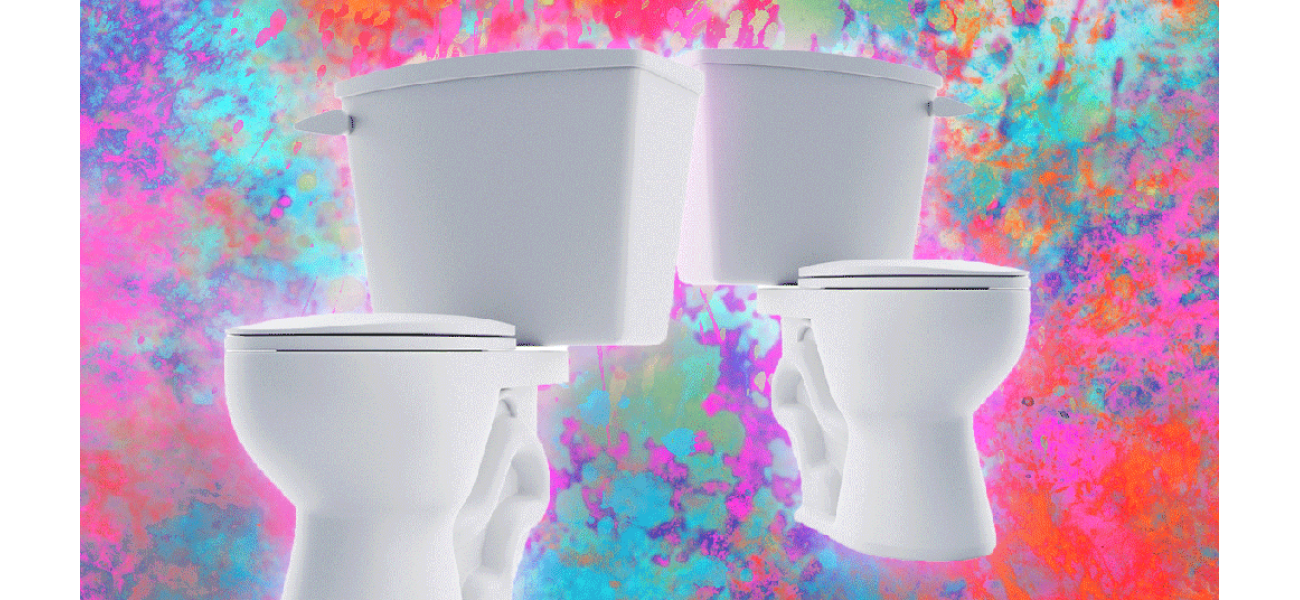Learn the signs of colon cancer and how your bowel movements can indicate your overall wellbeing.
Recognize the signs and don't allow shame to hinder you.
January 6th 2025.

Have you ever thought about the importance of understanding your bowel movements? It's something that may not be on everyone's mind, but it's actually quite crucial. In fact, in the UK alone, there are approximately 44,000 new cases of bowel cancer each year, making it the second leading cause of cancer-related deaths among Brits. It's a scary statistic, but there's some promising news on the horizon.
Recently, a groundbreaking new surgery has given hope to those affected by this disease. One such person is Bianca Perea, who was diagnosed with stage four bowel cancer at the young age of 32. Despite undergoing drug therapy, chemotherapy, and surgery, the cancer remained in her liver. However, last summer, Bianca became the first person in the UK to receive a liver transplant for advanced bowel cancer. And the best part? She is now cancer-free.
While Bianca's story is certainly miraculous, her oncologist at The Christie, Dr. Kalena Marti, cautions that what works for one person may not necessarily work for another. It's still important to be aware of the signs and symptoms of bowel cancer, and that includes getting to know your poo.
Do you know what to look out for? Unfortunately, it seems that many people do not. According to figures from Public Health England, over one million individuals who were invited for a bowel cancer screening in the years 2020 to 2022 did not take up the invitation within six months. One of the main reasons for this is embarrassment, as a survey found that over a third of participants felt that poo is a taboo subject.
However, Mr. Shahnawaz Rasheed, a consultant general surgeon at the Cromwell Hospital, wants to reassure patients that there is no need to feel embarrassed. He understands that the idea of a potential diagnosis can be daunting, and the thought of discussing personal matters or undergoing an examination can add to that anxiety. But it's important to remember that doctors and nurses are there to support you and address any concerns you may have.
Mr. Rasheed adds, "There's no correct number of times to poo in a day...and there's no need for embarrassment - we see many patients with similar problems all the time." Early detection is key when it comes to bowel cancer, as 98% of individuals who are diagnosed in the early stages will survive for a year or more. That number drops significantly for those who are diagnosed at a later stage.
So what are the symptoms we should be looking out for? According to Dr. Robin Clark, medical director for Bupa Global & UK, there are a few key signs to keep in mind. Firstly, it's important to remember that there is no such thing as a "perfect poo." Everyone's bowel movements are different and can vary in shape, size, color, and texture depending on what you've eaten. However, if you notice blood in your poo for no apparent reason, it's important to see your GP. This blood can be bright or dark red, and it may also be mixed in with your poo or visible in the toilet bowl. In some cases, it may make your poo look black, like tar.
Persistent changes in bowel habits, such as going more frequently or feeling like you haven't fully emptied your bowels, can also be a cause for concern. If these changes last for three weeks or more, it's important to consult with your GP. Additionally, if you experience abdominal pain after eating, it's crucial to seek medical attention as soon as possible. Dr. Clark emphasizes that early diagnosis can save lives, so don't ignore any warning signs.
Other symptoms to be aware of include unexplained weight loss and extreme tiredness for no reason. Dr. Clark advises, "It can be hard to remember all the warning signs, so I always urge people to be aware of what's normal for them and to 'check-CUP for cancer' - to check for a Change that is Unexplained or Persistent." It's normal to feel embarrassed or uncomfortable talking about bowel movements, but it's important to have open and honest conversations about it in order to catch any potential problems early on.
But how can you determine what's "normal" for you? That's where the Bristol Stool Chart comes in handy. This chart categorizes different types of poo and can help you identify any potential issues. Types one and two indicate constipation, type three and four are considered normal, type five may indicate a lack of fiber in your diet, type six could suggest inflammation, and type seven may be a sign of infection.
If you have a story to share about your experience with bowel cancer, don't hesitate to reach out and share it with others. It's important to raise awareness and encourage others to prioritize their health. Let's break the taboo and have open discussions about our bowel movements and overall health.
Recently, a groundbreaking new surgery has given hope to those affected by this disease. One such person is Bianca Perea, who was diagnosed with stage four bowel cancer at the young age of 32. Despite undergoing drug therapy, chemotherapy, and surgery, the cancer remained in her liver. However, last summer, Bianca became the first person in the UK to receive a liver transplant for advanced bowel cancer. And the best part? She is now cancer-free.
While Bianca's story is certainly miraculous, her oncologist at The Christie, Dr. Kalena Marti, cautions that what works for one person may not necessarily work for another. It's still important to be aware of the signs and symptoms of bowel cancer, and that includes getting to know your poo.
Do you know what to look out for? Unfortunately, it seems that many people do not. According to figures from Public Health England, over one million individuals who were invited for a bowel cancer screening in the years 2020 to 2022 did not take up the invitation within six months. One of the main reasons for this is embarrassment, as a survey found that over a third of participants felt that poo is a taboo subject.
However, Mr. Shahnawaz Rasheed, a consultant general surgeon at the Cromwell Hospital, wants to reassure patients that there is no need to feel embarrassed. He understands that the idea of a potential diagnosis can be daunting, and the thought of discussing personal matters or undergoing an examination can add to that anxiety. But it's important to remember that doctors and nurses are there to support you and address any concerns you may have.
Mr. Rasheed adds, "There's no correct number of times to poo in a day...and there's no need for embarrassment - we see many patients with similar problems all the time." Early detection is key when it comes to bowel cancer, as 98% of individuals who are diagnosed in the early stages will survive for a year or more. That number drops significantly for those who are diagnosed at a later stage.
So what are the symptoms we should be looking out for? According to Dr. Robin Clark, medical director for Bupa Global & UK, there are a few key signs to keep in mind. Firstly, it's important to remember that there is no such thing as a "perfect poo." Everyone's bowel movements are different and can vary in shape, size, color, and texture depending on what you've eaten. However, if you notice blood in your poo for no apparent reason, it's important to see your GP. This blood can be bright or dark red, and it may also be mixed in with your poo or visible in the toilet bowl. In some cases, it may make your poo look black, like tar.
Persistent changes in bowel habits, such as going more frequently or feeling like you haven't fully emptied your bowels, can also be a cause for concern. If these changes last for three weeks or more, it's important to consult with your GP. Additionally, if you experience abdominal pain after eating, it's crucial to seek medical attention as soon as possible. Dr. Clark emphasizes that early diagnosis can save lives, so don't ignore any warning signs.
Other symptoms to be aware of include unexplained weight loss and extreme tiredness for no reason. Dr. Clark advises, "It can be hard to remember all the warning signs, so I always urge people to be aware of what's normal for them and to 'check-CUP for cancer' - to check for a Change that is Unexplained or Persistent." It's normal to feel embarrassed or uncomfortable talking about bowel movements, but it's important to have open and honest conversations about it in order to catch any potential problems early on.
But how can you determine what's "normal" for you? That's where the Bristol Stool Chart comes in handy. This chart categorizes different types of poo and can help you identify any potential issues. Types one and two indicate constipation, type three and four are considered normal, type five may indicate a lack of fiber in your diet, type six could suggest inflammation, and type seven may be a sign of infection.
If you have a story to share about your experience with bowel cancer, don't hesitate to reach out and share it with others. It's important to raise awareness and encourage others to prioritize their health. Let's break the taboo and have open discussions about our bowel movements and overall health.
[This article has been trending online recently and has been generated with AI. Your feed is customized.]
[Generative AI is experimental.]
0
0
Submit Comment





